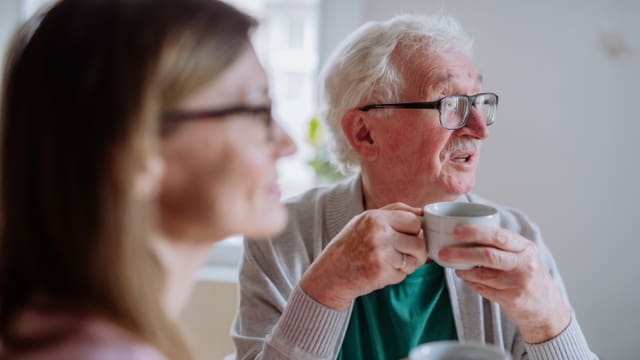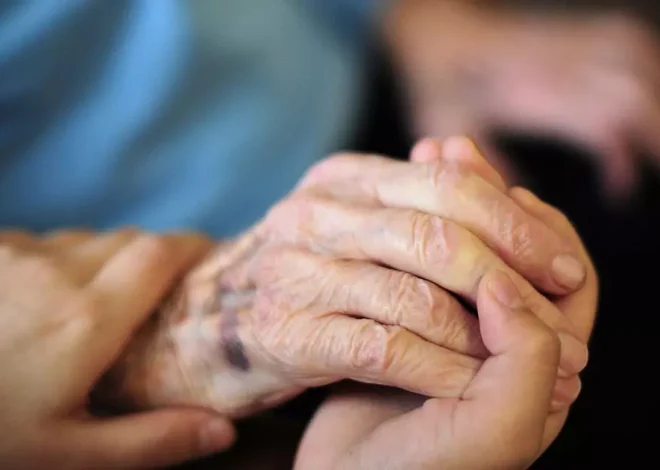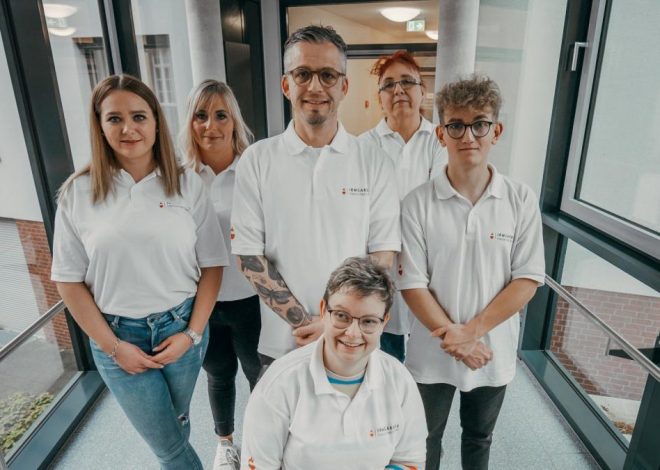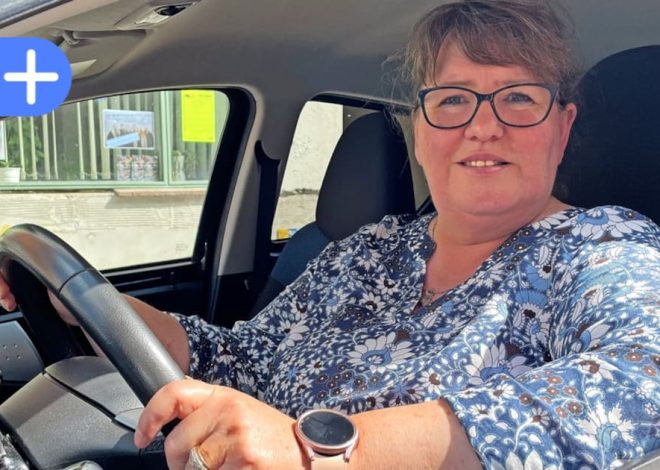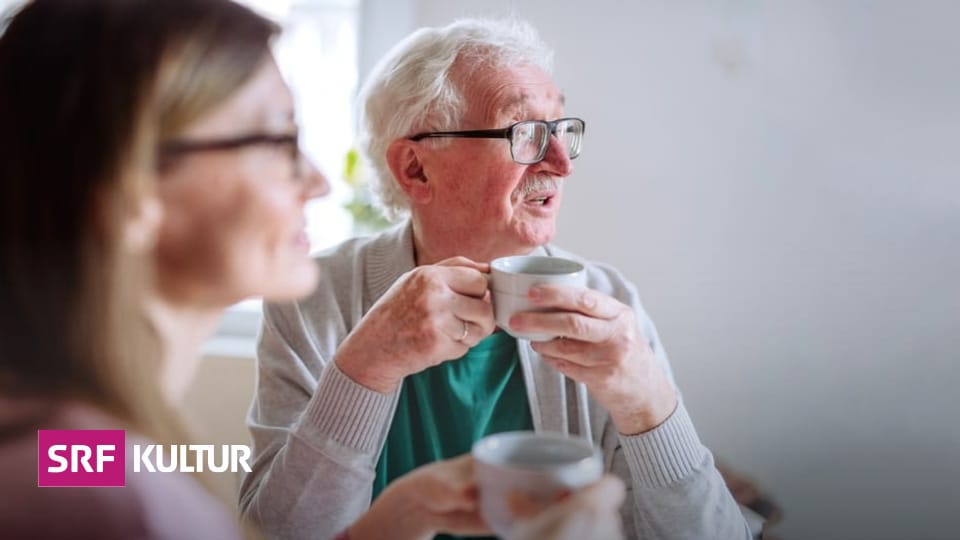
In need of care in old age – Do I owe it to my parents to care for them? – Culture
Our parents may have sacrificed themselves for us. But does that mean we have to do the same for them? And at what cost?
Annette F. (59) asks herself: “Do I have to look after my father until his death? And that even though my mother drove me to exhaustion?”
Anouc D. (23) would like to emigrate to Norway, but doesn’t want to let her parents down. Both considerations lead back to the moral question of whether we owe our parents something.
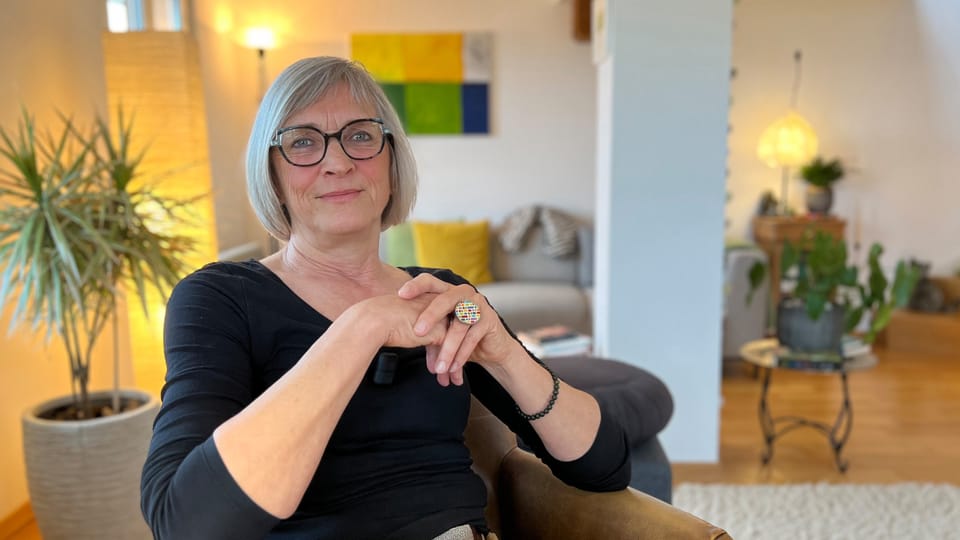
Legend:
“I collapsed and realized that nothing was working anymore,” says Annette F.. Caring for her mother exhausted her so much that she suffered burnout.
Matthias of Wartburg
Spoiler: The philosopher Barbara Bleisch says: “No, we don’t owe our parents anything.” However, the stories of Annette F. and Anouc D. show that the answer is not that simple in everyday life.
Nursing until burnout
Annette F. says: “It was clear to us children from an early age that we had to help out at home.” She grew up as the fourth child in a family that ran a nursery and flower shop. Her mother was often “very challenged and even overwhelmed” with her four children. “That shaped me.”
I felt obligated, but I was also happy to do it.
Two and a half years ago, her mother was diagnosed with “incurable abdominal cancer.” “I immediately felt responsible,” says Annette F.. She is not an only child, but unlike her, the other siblings no longer have close contact with their parents.
The mother wanted to die at home. It was clear to Annette F. that she wanted to fulfill her wish and care for her at home: “I felt obligated, but I was also happy to do it.”
Caring for her mother demanded everything from her. A few months after her mother became bedridden, Annette F. experienced burnout. “I collapsed and realized that nothing was working anymore.”
She still accompanied her mother until her last breath. On the day her mother’s body was removed from the apartment, Annette F. stood with her father in the room where her mother died. She clearly remembers the conversation she had with her father.
As for the mother, so for the father?
Her father said: “The sun is shining so beautifully into the room again. If I’m no longer feeling well, I’ll put my bed here too.” Annette F. replied: “Oh yes, and who is looking after you?” The father looked at his daughter in astonishment and said with a questioning look: “You?”
She realized at that moment that her father expected her to do for him what she had done for her mother. But it quickly became clear to Annette F.: “After what my mother did to me, I can’t and don’t want to do that.”
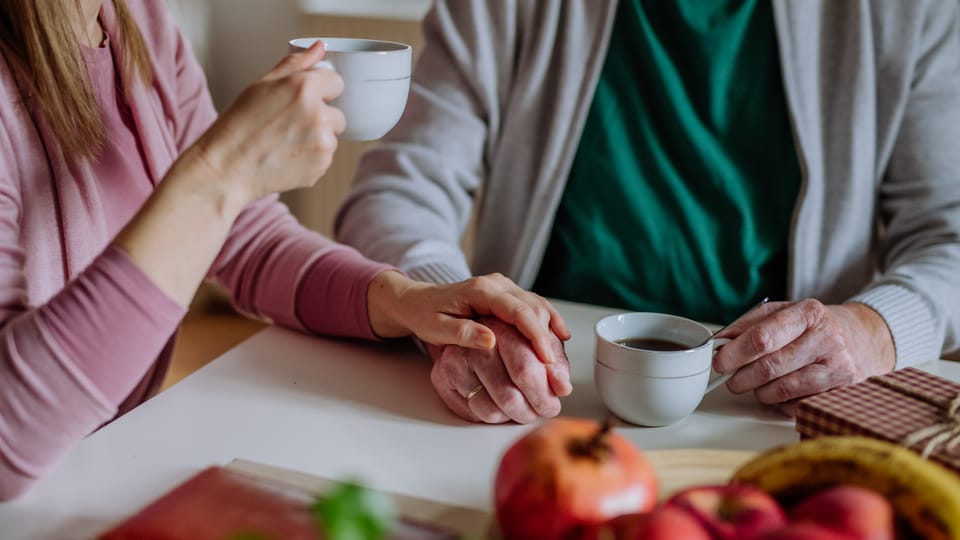
Legend:
Not an easy step, but an important one: talk to the parents to clarify expectations and options for care in old age.
Colourbox / #232319
Annette F. revealed to her father during this conversation that she would not care for him. He was amazed, she says. After a long pause, he said: “Yes, that’s just the way it is.”
The father will be 90 this year and is showing the first signs of dementia. Three months after his wife died, he moved into a retirement home.
We don’t owe our parents anything.
She continues to accompany her father on his journey, says Annette F.: “I wouldn’t have been able to sacrifice myself a second time just so that he could stay in this apartment.” It is now true for both. For Annette F. it is clear: “We don’t owe our parents anything just because they gave us life.”
Are dreams and reality compatible?
Anouc D. has also given a lot of thought to caring for her parents. The 23-year-old lives in Basel, but her dream has been to emigrate to the north for a long time. That’s all well and good – if it weren’t for the sense of duty towards their parents.
I love my parents and don’t want to be selfish.
Her mother is 62, her father 73. “My father is 50 years older than me.” The question of caring for parents is slowly becoming an issue for her. “I want to be there for my parents for sure.” This conflicts with the dream of emigrating.
Anouc D. feels torn: “On the one hand, I know that I want to make my dreams come true. At the same time, I love my parents and don’t want to be selfish.” That’s why she’s even thought about emigrating to Norway with her parents.

Legend:
Like in a picture book: Anouc D. wants to emigrate to Norway with her parents.
IMAGO / Shotshop
Her parents were surprised that their daughter was already thinking a lot about possible care. “She thinks more about it than I do,” says the mother with a laugh. The father, who is eleven years older than his wife, sounds different: “I’m already thinking about how things can go on,” he says.
Anouc D’s father has no expectations, but he also says: “I am aware that it is good when you are embedded and well connected in old age.” This networking does not necessarily have to be close contact with the daughter. “But of course it would be nice if that were the case,” says Gerold.
Emigrating with parents
When the father first heard about the idea of emigrating with his daughter, he spontaneously said: “I’ll come with you straight away. I speak Norwegian, so it’s a nice idea for me.”
The mother wouldn’t be averse either: “I always said that when I get older I might not be able to stand the heat anymore. So the north would be a good fit.”
Parents and daughters are open to unconventional solutions. The mother brings up the question of guilt again and says to her daughter: “You don’t owe us anything. And I only expect one thing from you: live your life.” The father adds: “Yes, go your way. I don’t want us as parents to suddenly be a brake on you.”
That’s why we don’t owe our parents anything
When we look at it soberly, we actually don’t owe our parents anything. The philosopher and SRF presenter Barbara Bleisch comes to this conclusion in her book “Why we don’t owe our parents anything”.
In the case of classic debts, there are two contracting parties, argues Bleisch. Person Both decide on this deal.
But children would not actively decide to be born. Therefore, the attitude that children owe their parents something is not permissible.
Bleisch further argues that traditional debts will eventually be paid off. That doesn’t work in a parent-child relationship either. “Parents will not tell their children that they have to visit them three more times or pay them an annual subscription for public transport because only then will the debt that the child previously incurred be paid off,” she writes.
Who expects what?
Anouc D. listens to her parents and says: «Yes, maybe they don’t expect me to take care of them. But I probably expect it of myself.” Her parents had given her so much, so it was clear to her that she wanted to give something back.
Where does this expectation of yourself come from? Possibly less from the inside than from the outside: “If I were to emigrate without my parents, there would definitely be sayings,” Anouc D. is convinced. Sayings like: “Why do you let your parents down?”
Annette F. also doubted her decision not to care for her father because of similar comments. She also had questions about her relationship with her 31-year-old son: “I wonder what it will be like when my strength starts to diminish when I need care. Does he then feel responsible as my only child?”
And as a mother, what does she expect from her son? “I don’t expect anything,” says Annette F. She just wants her son to notice her. But she doesn’t expect him to come visit her every week. “That would of course be nice, but it remains a wish.”
Rationally speaking, the matter seems clear: we owe our parents nothing. However, your own feelings, expectations or guilty conscience sometimes contradict this knowledge – as with Annette F. and Anouc D.

Ethel Purdy – Medical Blogger & Pharmacist
Bridging the world of wellness and science, Ethel Purdy is a professional voice in healthcare with a passion for sharing knowledge. At 36, she stands at the confluence of medical expertise and the written word, holding a pharmacy degree acquired under the rigorous education systems of Germany and Estonia.
Her pursuit of medicine was fueled by a desire to understand the intricacies of human health and to contribute to the community’s understanding of it. Transitioning seamlessly into the realm of blogging, Ethel has found a platform to demystify complex medical concepts for the everyday reader.
Ethel’s commitment to the world of medicine extends beyond her professional life into a personal commitment to health and wellness. Her hobbies reflect this dedication, often involving research on the latest medical advances, participating in wellness communities, and exploring the vast and varied dimensions of health.
Join Ethel as she distills her pharmaceutical knowledge into accessible wisdom, fostering an environment where science meets lifestyle and everyone is invited to learn. Whether you’re looking for insights into the latest health trends or trustworthy medical advice, Ethel’s blog is your gateway to the nexus of healthcare and daily living.

